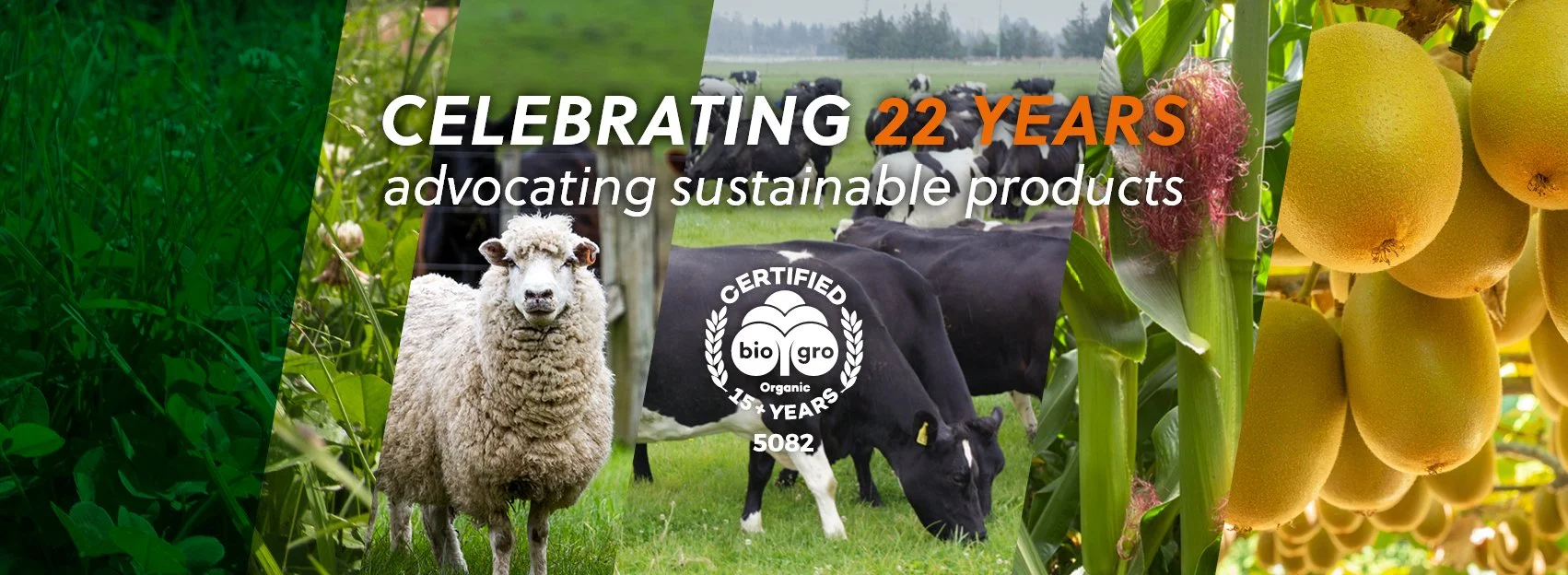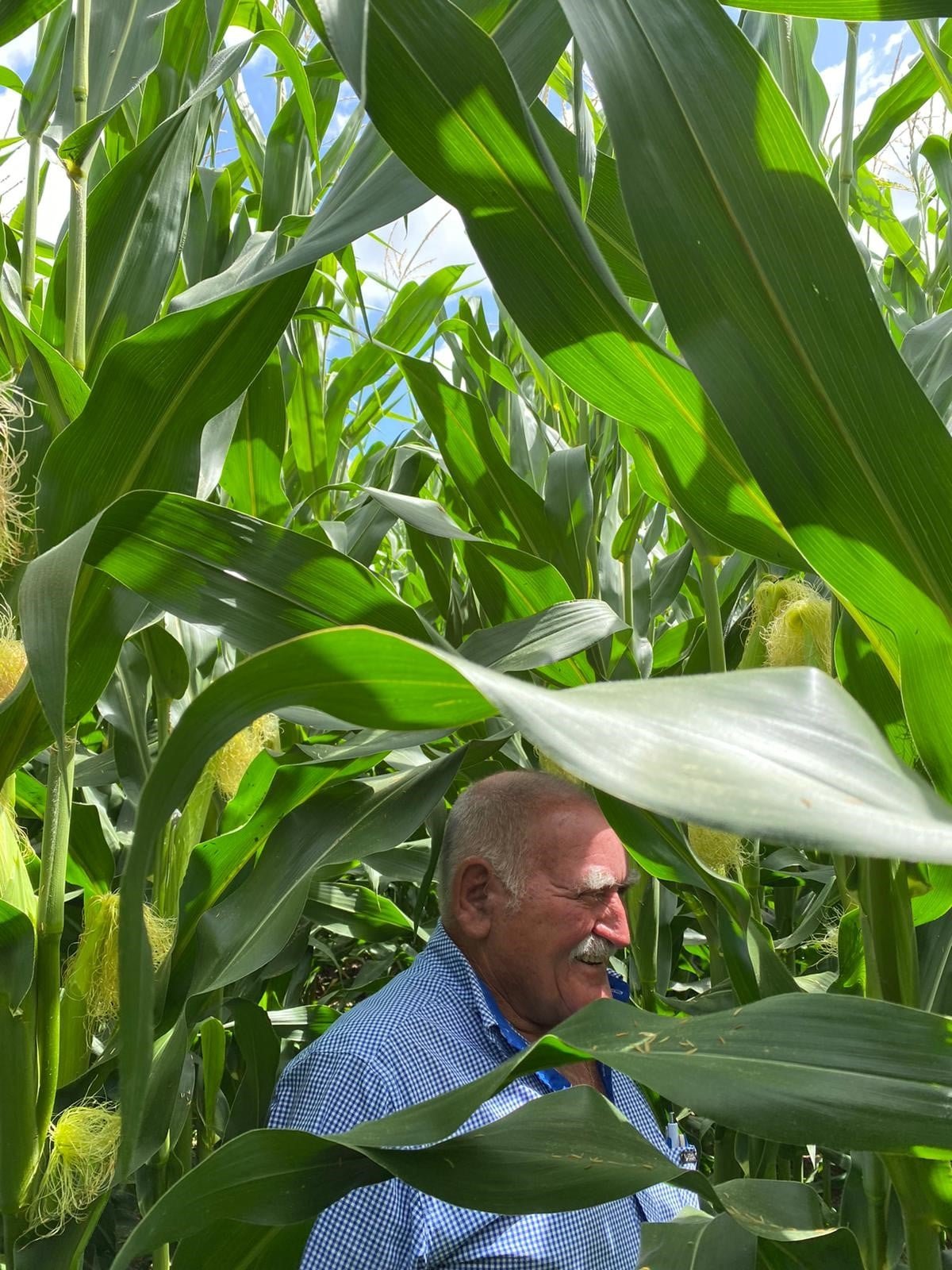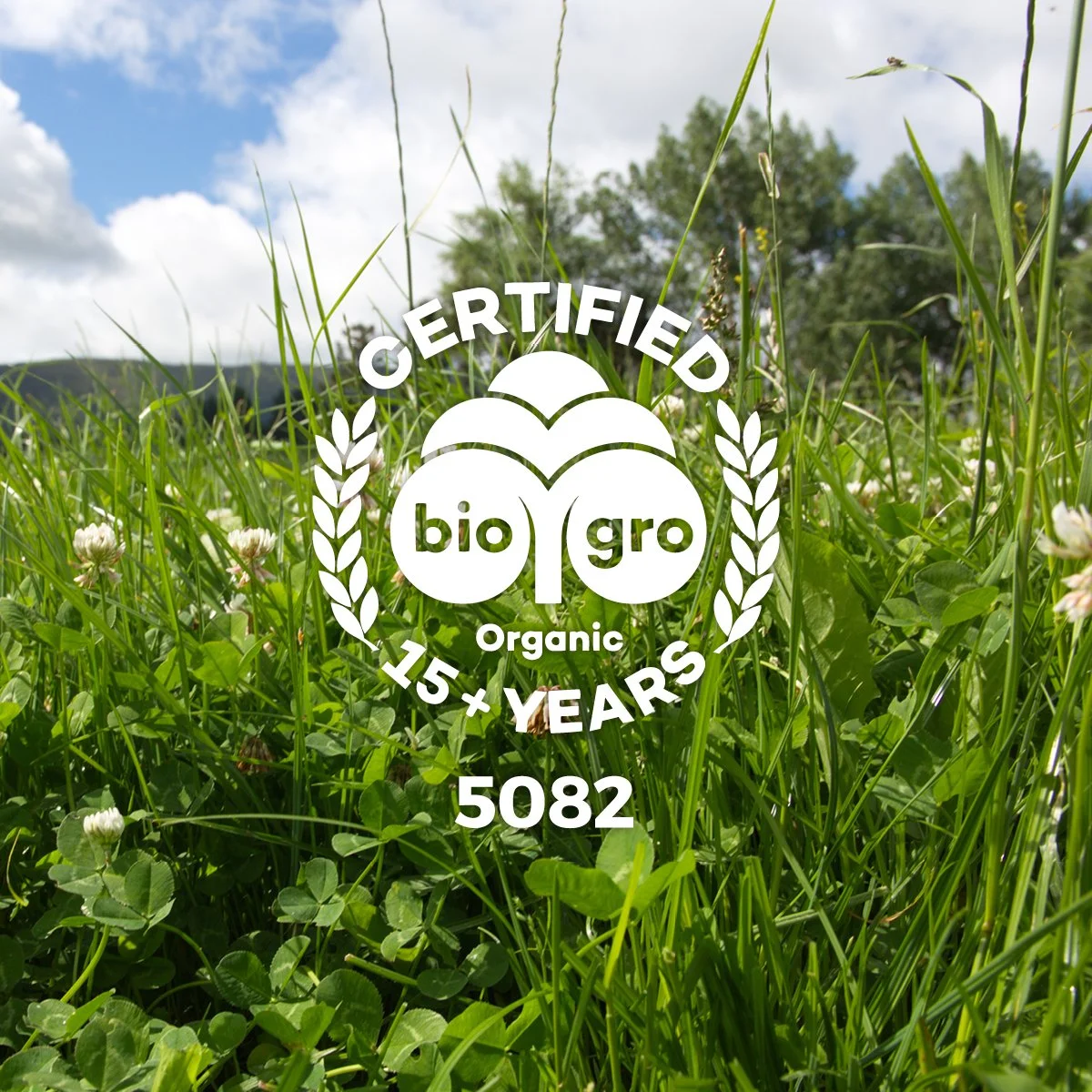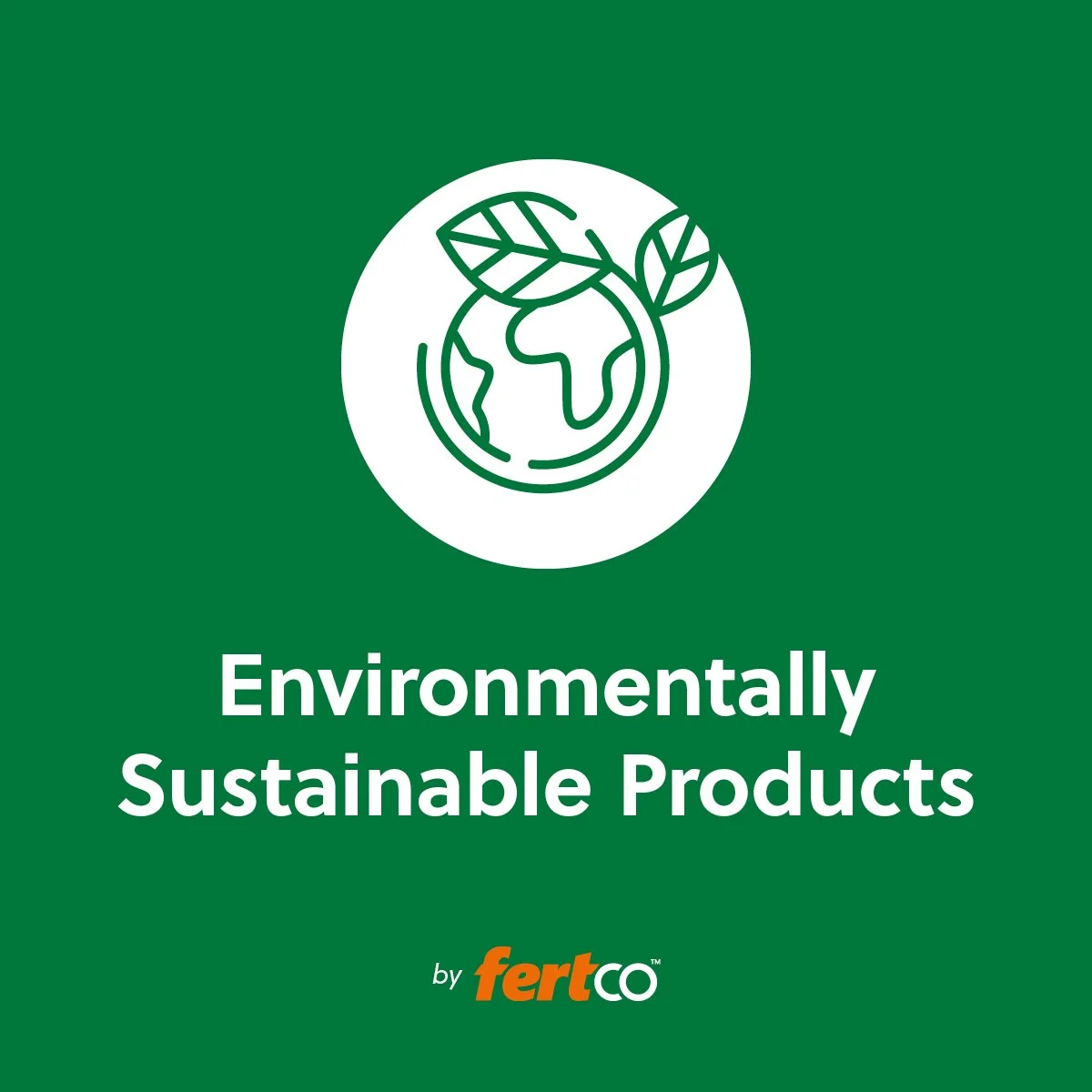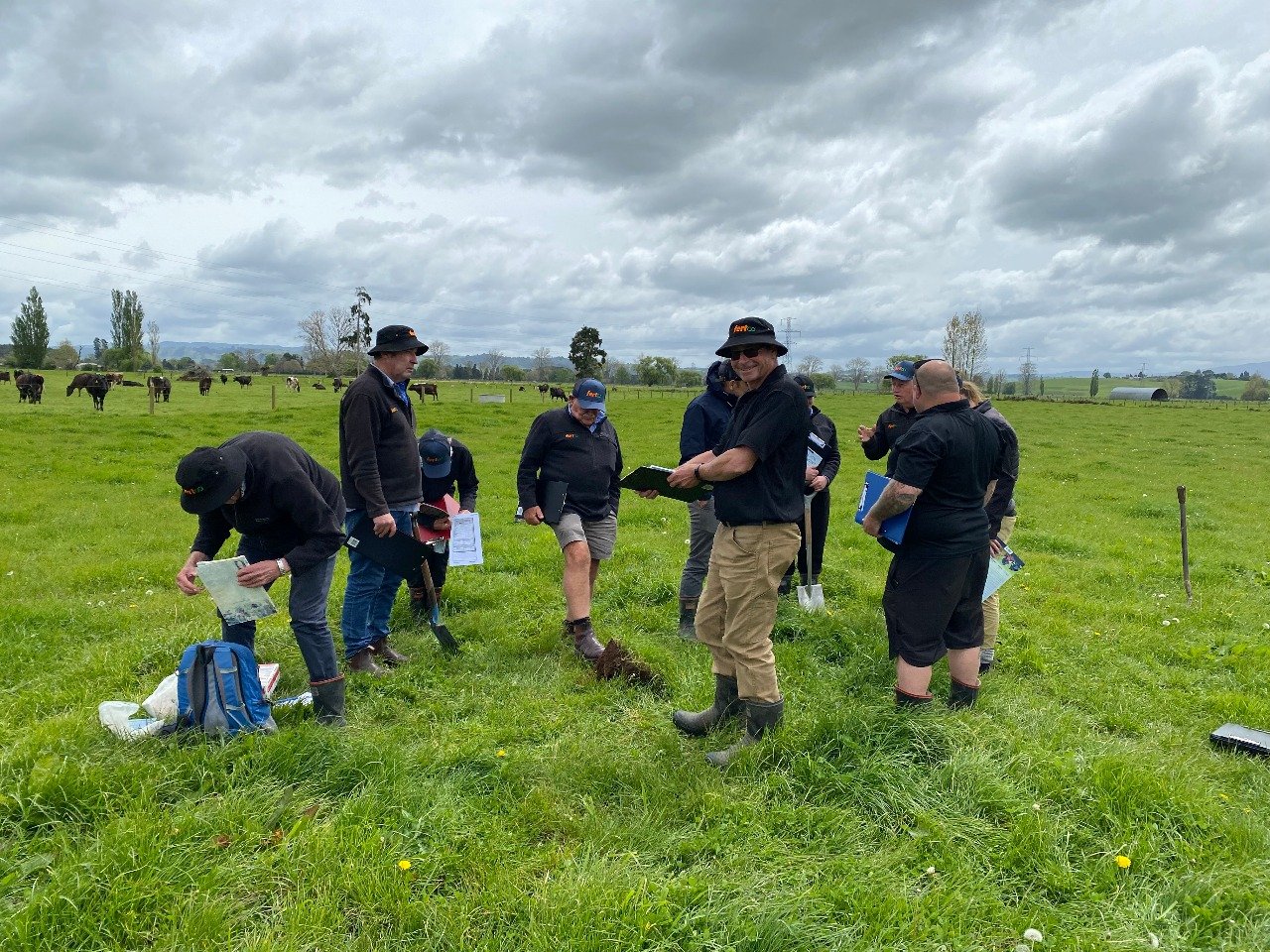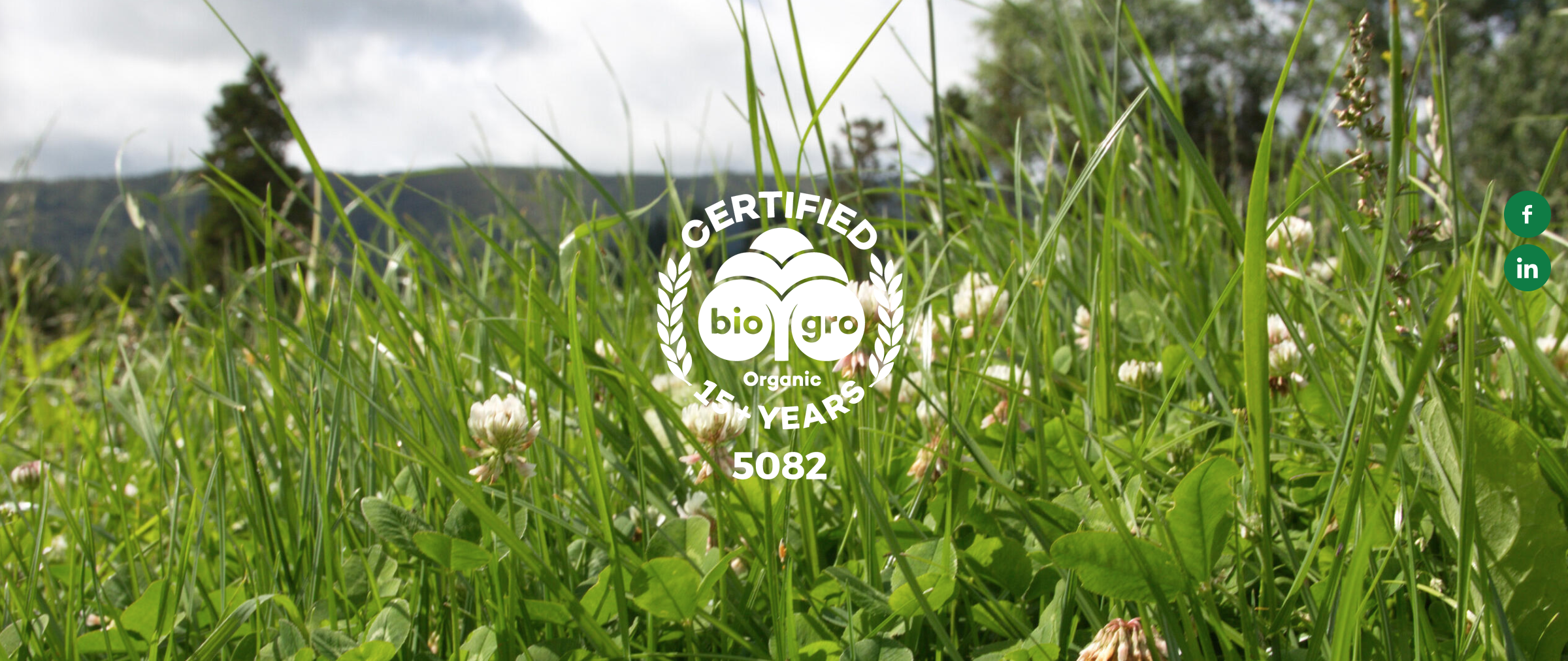Meet Our Makers: Q&A with Chris Lees, Fertco
OANZ member Fertco was founded in 1999 by a group of farmers wanting to deliver products with a ‘softer’ impact on the environment and to deliver a more personalised level of service to fellow farmers. We talked to the commercial manager, Chris Lees, about Fertco’s range of products and how they are helping farmers grow more whilst lessening their impact on the environment.
Can you tell us more about the Fertco philosophy?
Yes, as you say, the Fertco founders were looking for a new approach to the traditional cooperative model they had been engaged with for over a generation. So, ‘softer’ products and a company with a more personalised service were what they wanted.
This approach certainly worked because today, Fertco holds a respected niche within the farming community for the same reasons it was founded.
We have always focused on fertilisers with lower impact where nutrient loss is minimal. And this has proven the company was ahead of its time. Only now are other fertiliser companies catching up to us because fresh water and greenhouse gas regulations are starting to have real impacts on fertiliser use and farm management.
Fertco has supplied Bio-gro certified products to farmers and growers for over 17 years. We connect strongly with the organic farming community and the growing regenerative farming sector. We are also ideally positioned to help any farmer wanting to develop more sustainable and environmentally friendly practices.
Why do you think farmers and growers should use non-toxic fertilisers?
No one wants to harm the environment. That’s why we focus so much on helping both conventional and organic farmers in their efforts to grow profitably while minimising the negative effects on the soil and waterways.
One of the most important things we do before we recommend any inputs is to assess the physical, chemical, and biological status of the soil. We do this by conducting soil tests and VSA (Visual Soil Assessment) tests. In some cases, we test the herbage, too, to check what nutrients the plants are actually taking up.
We then help farmers and growers select the right products for use at the right rate and at the right time. For organic producers, we only recommend products that are bio-gro certified for full international market access.
Are you seeing more farmers in NZ wanting to develop more sustainable and environmentally friendly practices?
Yes, absolutely. There is a lot of interest, even from farmers and growers, who aren’t necessarily at the stage of applying for organic accreditation. More and more producers are questioning conventional methods and wanting to change how they do things. They want to do the right thing for the environment. In a lot of cases, they want to be able to look after the land so the next generation can farm it, too.
What are some of the biggest challenges facing the farmers you consult with today? How can we overcome these challenges?
One of the biggest challenges for farmers today is how to transition from conventional farming to regenerative/biological farming and then on to organic farming. Many are often nervous about making the change and worry about a short to medium-term drop in yields and, of course, a potential loss of income.
Because we have a range of softer conventional options, right through to fully-certified organic products, we are well placed to help people along this journey.
For many growers, compliance is a big headache. It is very time consuming and costly. This is another thing we can help with because we provide fertiliser nutrient reports as well as product analyses to meet the needs of regulators.
Another challenge for farmers is the cost of on-farm production. This peaked during Covid but is still relatively high in historical terms. At Fertco, we always work within growers’ budgets and look for the most efficient way to achieve their goals. We also have many suppliers, which means we can find competitive prices for our products and pass these on to our customers.
Can you share how Fertco is adapting your business for our changing climate?
Most of the products that we import arrive in containers in woven plastic one-tonne bags. These bags used to be disposed of in landfills. We felt that this was not acceptable and invested in two plastic baling machines. All the waste plastic produced on our sites is now recycled.
We have also adapted the products themselves. For example, for conventional farmers, we have slow-release fertilisers that are coated with bio-degradable vegetable-based coatings. We don’t use cheap coatings that are petrochemical-based.
Another saving with the slow-release products is that there are fewer applications needed. So fuel is saved. And there is less chance of loss to the environment as the nutrients are released more slowly.
Our CloverZone programme is a relatively recent development. Most people know that clover is great at fixing nitrogen in the soil, but perhaps not aware that by maximising their clover growth, they can reduce their reliance on nitrogen. So this programme is designed to help grow more clover, and fix your own nitrogen.
There will always be a requirement to replace a certain level of nutrients that are removed from a farm in crops and/or livestock. But it’s vital that we are efficient about what we put back. So, we encourage the use of humates, biostimulants, and multi-species crop mixes, which stimulate soil biology and help to unlock the nutrients that are already present within the soil.
What do you think the future holds for NZ’s agricultural sector?
We believe that NZ agriculture has a very bright future. NZ is one of the world’s best producers of grass-fed beef and lamb, and we should be very proud of this.
It is increasingly recognised that livestock have positive impacts on soil biology and carbon sequestration when farmed in the appropriate systems. These systems are also more favourable from an animal welfare perspective when compared with the feedlot systems used in many overseas countries.
New Zealand is very well positioned to become the best in the world for producing food that is not only organic but has a low environmental impact and is healthier for people and the environment.
What’s in store for Fertco in 2024?
We have a few exciting developments in the pipeline as far as products go, but unfortunately, we are not in a position to disclose these at this time.
We are planning to hold an organic field day in the Bay of Plenty this autumn, focusing on soil health. So check out our Facebook page and website for information about this event.
Mostly, we will be continuing to develop partnerships with suppliers of “softer” and organic products to extend the range of solutions that we can offer to our customers.

